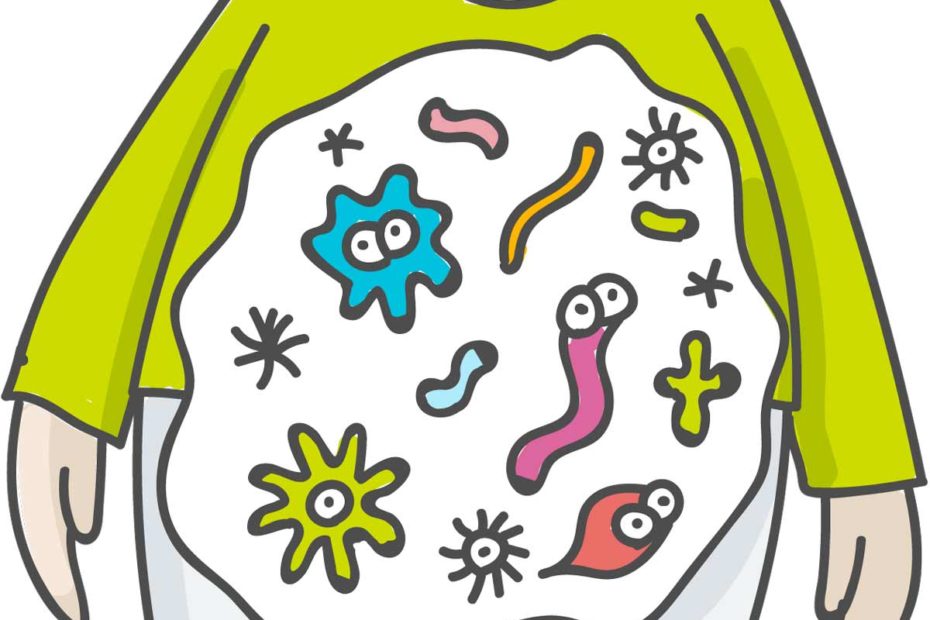You probably feel pretty human, right? Speak at least one language, able to walk upright, intelligent (mostly) – yep, definitely human. I hate to say it, but you couldn’t be more wrong.
While it may not feel like it, your body is a rich and dynamic ecosystem populated by a staggering number of non-human organisms that influence the way you function day-to-day. These are collectively referred to as your ‘microbiome’ – an umbrella term used to describe the trillions of microorganisms residing on and in you at any given moment.
While estimates vary wildly, a recent study published in 2016 suggested the average human being plays hosts to around 40 trillion microbes at any one time. Considering our entire human cell count only amounts to a meagre 37 trillion (or so), this means we spend a fair proportion of our lives more non-human than human! (1)
But, what exactly does the microbiome do?
A better question may be: what doesn’t it do?
Your microbiome has also been found to exert a widespread effect on many areas of your health – from digestion and immune function to your risk of developing chronic diseases such as irritable bowel syndrome and diabetes (2).
While your whole body could be considered a bustling metropolis of microbes, by far the most microbe-dense area is your gut. The gut alone is thought to contain between 500 and 1000 species of bacteria, which play a vital role in extracting energy from the food we eat, producing essential nutrients (short-chain fatty acids) and out-competing harmful bacteria attempting to gain entry to our precious insides.
There’s even a growing body of evidence that your microbiome could be affecting your psychological health, with imbalances in your gut bacteria (dysbiosis) having been linked to conditions such as depression, anxiety and Alzheimer’s (more on this to come!) (3).
Long story short, we rely on these tiny organisms far more than we previously thought. Understanding the precise ways in which the microbiome affects mental and physical health is certainly a hot topic at the moment and one of the most rapidly expanding fields of modern medical research. We’re gradually starting to put the piece of the puzzle together but there’s definitely still a long way to go – watch this space!
Did you know it’s a lasting gift from Mum?
For the most part, the little critters that populate our insides are gifted to us by our mothers at the start of our lives (thanks, Mum!).
When we’re born, the microbes present in our mother’s vaginal fluids are transferred to us during delivery and act as the first colonisers, paving the way for future generations of bacteria that remain with us throughout our lives. Being covered in vaginal juices may not sound like a whole lot of fun, but it is absolutely essential to ensuring the baby’s microbiome develops properly. In fact, the manner in which babies are born can have a huge effect on their microbial profile.
Children born via the traditional route typically display a more diverse array of microbes than those born via C-section (4). This, in turn, can have significant effects on the baby’s long-term health as these ‘first colonisers’ can directly affect the species of bacteria that move in later in life. Given the make-up of your microbiome has been implicated in everything from digestion to immune function and even mental health, you can see why this could be problematic in the long run!
5 ways to making friends with your microbiome
Treating your microbiome well by giving it everything it needs to thrive is a great way of promoting better mental and physical health. Here are some quick tips you can incorporate into your life to ensure your gut stays happy:
1. Eat lots of fruit and vegetables (gut bacteria love fibre!)
2. Establish a regular sleeping pattern
3. Avoid toxins and unnecessary antibiotics
4. Reduce stress (stress hormones are not good for your gut)
5. Sign up to Reset Your Health, for 4 weeks’ worth of delicious recipes to get your gut bacteria back on track!
Stayed tuned for more facts, tips and tricks from the Reset Your Health Team.
Bibliography
1. Sender, R; Fuchs, S; Milo, R “Are We Really Vastly Outnumbered? Revisiting the Ratio of Bacterial to Host Cells in Humans”. Cell. 2016
2. Rogers C. Gut Well Soon. Panoma Press. 2019
3. The microbiota–gut–brain axis [Internet} Nature Research. [Cited 2019Mar16], Available from: https://www.nature.com/articles/d42859-019-00021-3
4. C-section babies are missing key microbes [Internet} Nature Research. [Cited 2019Mar16], Available from: https://www.nature.com/articles/d41586-019-02807-x
